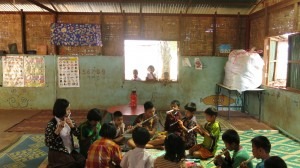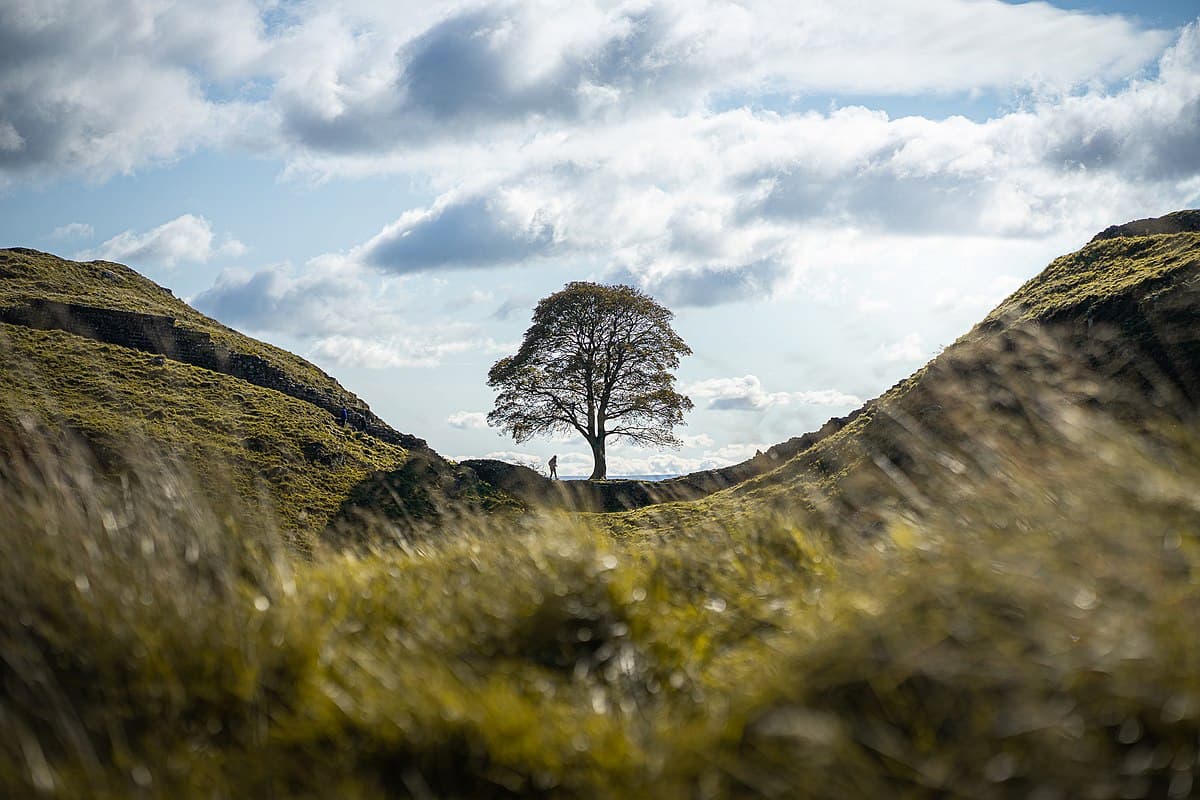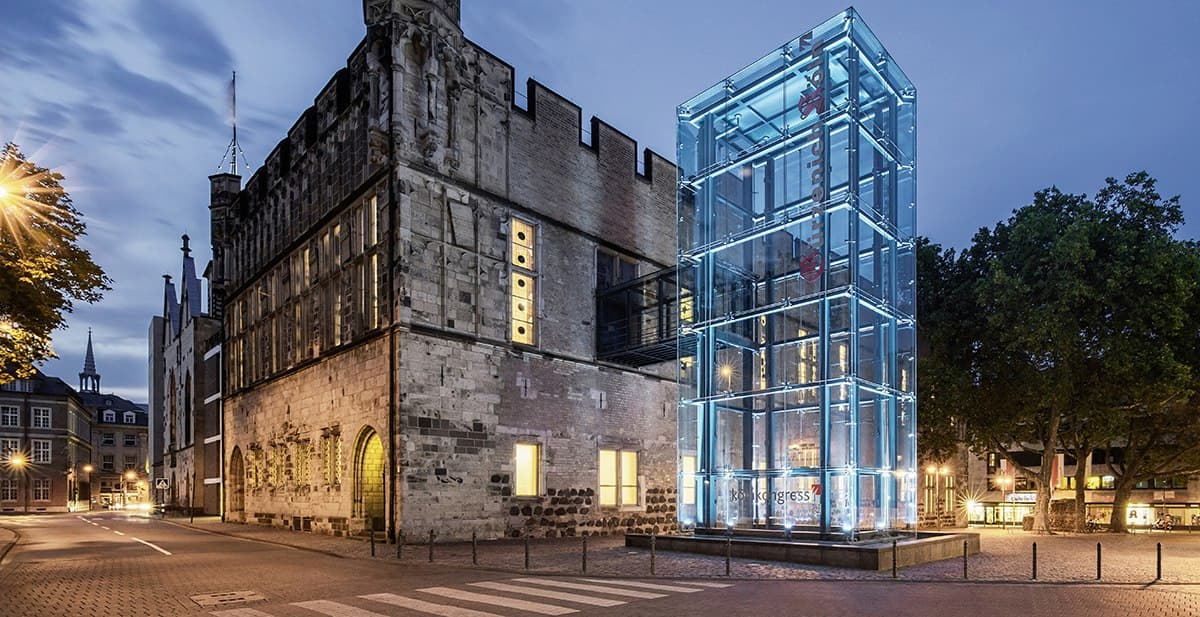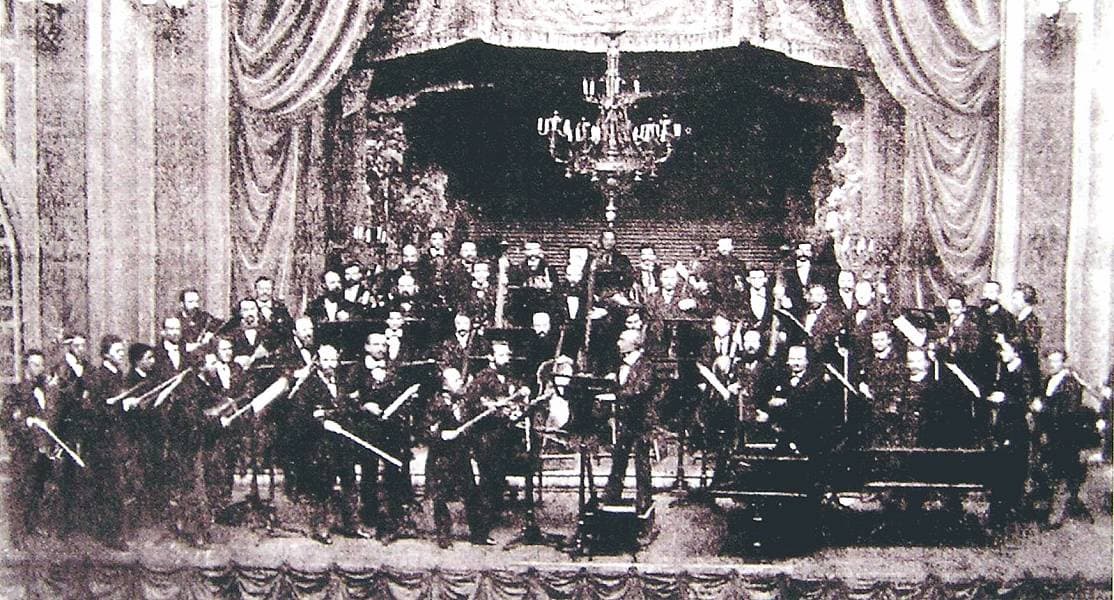 2016 has certainly seen more crises than most years. But while the attention of the general public and the media tends to move quickly from one disaster to the next, many of those crises remain far from resolved. One of the most severe is surely the migrant crisis. While major charitable organisations continue to work in the refugee camps of the Middle East and Calais, one organisation is finding its own way to support those trapped within complex bureaucratic networks. Play for Progress, founded by flautist Alyson Frazier and doctor-musician Anna Macdonald, provides support to young people impacted by conflict and war. They’ve already won awards and received recognition from high-profile corporations and other international organisations, and are looking to expand their work at home and abroad. I caught up with Alyson to find out more.
2016 has certainly seen more crises than most years. But while the attention of the general public and the media tends to move quickly from one disaster to the next, many of those crises remain far from resolved. One of the most severe is surely the migrant crisis. While major charitable organisations continue to work in the refugee camps of the Middle East and Calais, one organisation is finding its own way to support those trapped within complex bureaucratic networks. Play for Progress, founded by flautist Alyson Frazier and doctor-musician Anna Macdonald, provides support to young people impacted by conflict and war. They’ve already won awards and received recognition from high-profile corporations and other international organisations, and are looking to expand their work at home and abroad. I caught up with Alyson to find out more.
Could you introduce yourself and Play for Progress?
Primarily a classical and contemporary flautist, I strongly believe in the vital importance of applying ones skills to improve the lives of others. As such, I co-founded Play for Progress in 2014 out of a desire to use music to achieve its full potential: to strengthen the connections within and appreciation of our diverse global community, and to provide support for the world’s most vulnerable, primarily children effected by conflict.
 Play for Progress is a London-based global organisation that delivers therapeutic and educational music programmes for children and young people who are affected by conflict and war to help them develop innovative and vital life skills. We aim to expand the community of support that these young people have to succeed through deep personal connections between our dedicated staff and our students.
Play for Progress is a London-based global organisation that delivers therapeutic and educational music programmes for children and young people who are affected by conflict and war to help them develop innovative and vital life skills. We aim to expand the community of support that these young people have to succeed through deep personal connections between our dedicated staff and our students.
Our Croydon-based ‘Make Some Noise’ programme enables unaccompanied minor asylum seekers who receive support from the Refugee Council Children’s Section the ability to engage with others and learn through music instruction.
In addition to working at home, we have travelled to Calais, Greece, and Thailand to deliver workshops and provide aid within refugee camps. Every moment spent on site helps us to contextualize and begin to comprehend the kind of trauma experienced by the children and families we support, and to understand if and how we can support them.
How did you start, and how is the work going so far?
In early 2014, I returned from India where I was working to develop a music programme for a rural school in the Himalayas, and Anna returned from volunteering at an orphanage for refugee children in Erbil, Iraq. Our experiences caused us to seriously consider how best we could apply our skills to improve the lives of those we saw as being the most vulnerable: children who have been impacted by conflict.
 There is nothing more dangerous than leaving the youngest generation of the Earth without hope and positive examples to reinforce the importance of the self and of connecting with others. We cannot leave these young people to fend for themselves while politics delay and policies fight through bureaucracy. These children need our help now, and it is through community-building projects like ours that we can effect change and work towards a more peaceful, diverse, and welcoming tomorrow.
There is nothing more dangerous than leaving the youngest generation of the Earth without hope and positive examples to reinforce the importance of the self and of connecting with others. We cannot leave these young people to fend for themselves while politics delay and policies fight through bureaucracy. These children need our help now, and it is through community-building projects like ours that we can effect change and work towards a more peaceful, diverse, and welcoming tomorrow.
In 2014 we were awarded the Deutsche Bank Award for Creative Enterprise, with which we delivered a programme for Burmese refugee children in Thailand. Shortly after that, we approached the Refugee Council UK’s (RCUK) Children’s Section in Croydon [near London], which currently supports about 500 unaccompanied young refugees, with a proposal to develop a music education programme. Thanks to funding from the National Lottery’s Awards for All, the Santander Discovery Award, and private donations, we’ve successfully launched our ‘Make Some Noise’ programme.
What’s that programme all about?
‘Make Some Noise’ expands and enriches the community these young people have to reach out to for support, learning, and fun. Run in partnership with the RCUK and Orchestras for All, our immediate network of resources and supportive individuals is far-reaching. As part of the programme, any young person who wants to learn a musical instrument is provided with an instrument, weekly one-on-one tuition, enrolment in our once-monthly workshops, and the opportunity to participate in Orchestra for All’s National and Regional Orchestras. Participation in those larger ensembles gives our students the chance to engage in music making with other kids their age who come from all across the UK.
Why do you think this work is so important? What differences have you seen?
I’m a firm believer that everyone should try to improve the world with whatever skills they have. The kind of work we do is vital. Music taps into our most intimate experiences and emotions while also helping to develop new cognitive strengths and tools. Learning a musical instrument develops critical thinking skills, creative skills, self-discipline, literacy and numeracy, collaborative skills, the ability to work to a goal, the ability to express yourself, develop confidence – tools for leading a successful and fulfilling life. Beyond that, music is used worldwide in all cultures to mark important moments, both public and private, and such traditions bring communities together. The value of being able to engage with another person or foreign culture through music cannot be overstated, and one such experience may be just the kind of thing to melt away intolerance, misunderstanding, and fear of the unknown. There is great strength in our diversity – let’s use it.
What are your plans for Play for Progress?
We’re committed to continuing this programme indefinitely, which is why we need donations! Our vision is to create a sustainable and ever-growing community of people united in solidarity with one another through music.
Ultimately, we want to help others realize the benefits of engaging with ‘play’ (whether music related or not) regardless of age, and encourage all to use ‘play’ as a healthy, accessible, and safe method of interacting with and understanding others, especially during distressing times. Being able to step outside yourself and be creative without a goal in mind can be a valuable tool in overcoming resistance, depression, fears, and other seemingly insurmountable problems. Here’s to working together!
Alyson Frazier is a co- founder of Play For Progress. Learn more about their work and offer support at www.playforprogress.com.
More Society
-
 Cello Lament for The Sycamore Gap Tree Italian cellist and composer Riccardo Pes’ “Lament for the Tree”
Cello Lament for The Sycamore Gap Tree Italian cellist and composer Riccardo Pes’ “Lament for the Tree” -
 The Gürzenich in Cologne Learn about some famous premieres here
The Gürzenich in Cologne Learn about some famous premieres here -
 Meiningen Court Theatre and Orchestra What works did the Meiningen Orchestra premiere?
Meiningen Court Theatre and Orchestra What works did the Meiningen Orchestra premiere? - Counter-Revolutionary Activism
From the Stages of Europe to the Soviet Gulag Classical Music in Response to Injustices



